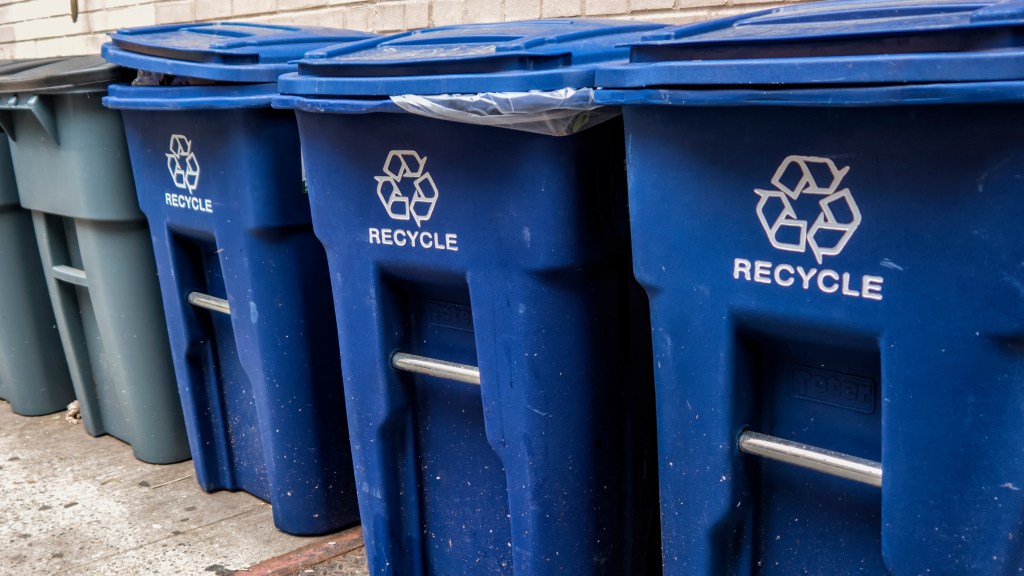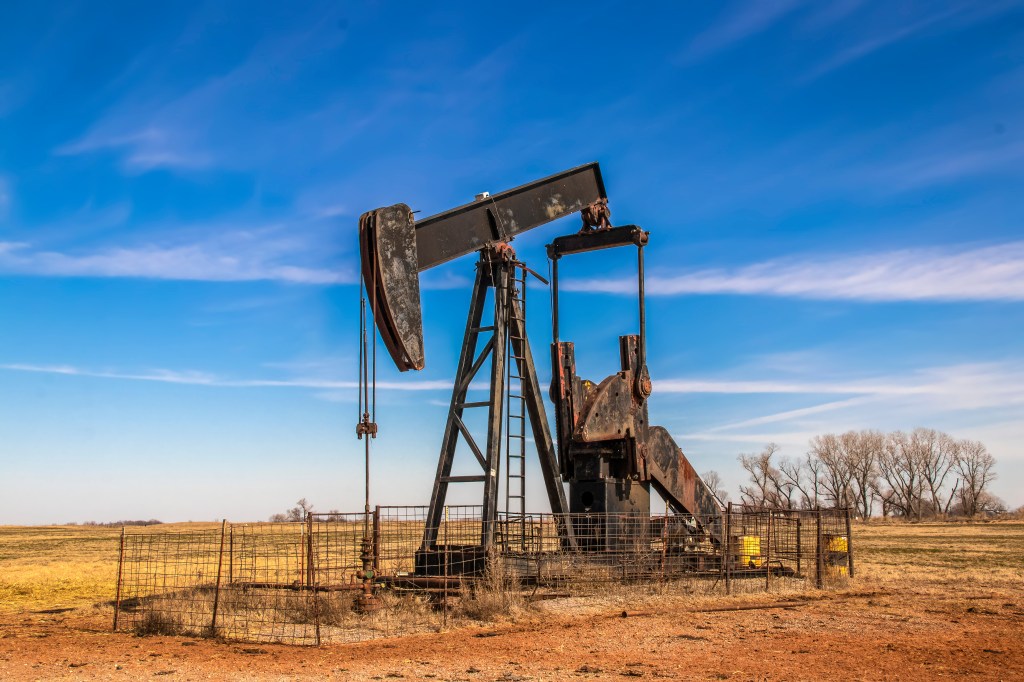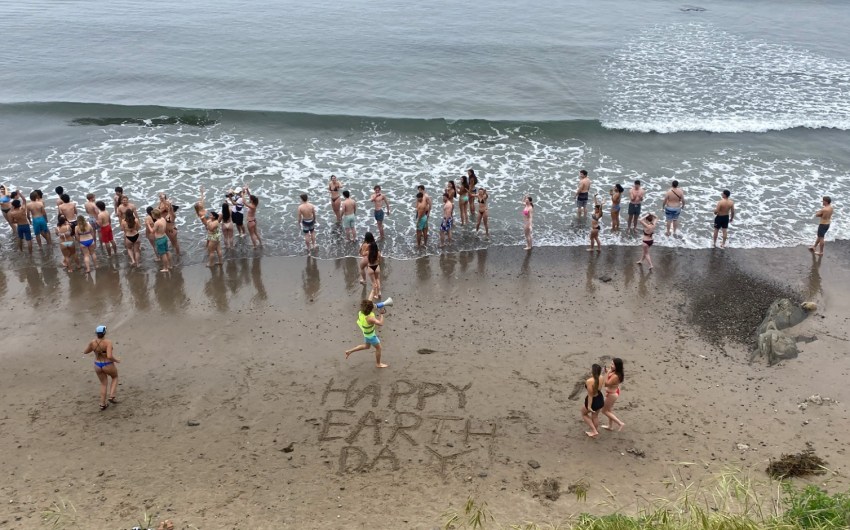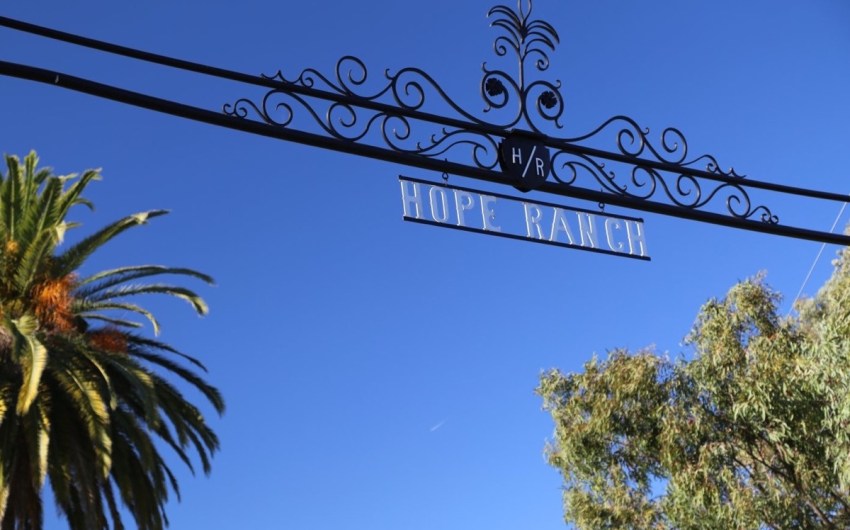New California Laws Aim to Make Golden State Greener in 2024
These Environmentally Friendly State Laws Target Gas-Powered Lawn Tools, Deceptive Recycling Symbols, Orphan Wells, and More
Among the New Year’s new state laws, a few are aiming to help clean up the environment, targeting emissions, garbage, and oil and gas.
Here are some of California’s greener laws being enacted in 2024.
Emissions

Stop your engines! With the goal of achieving zero emissions by 2035, California is clamping down on air pollutants — starting with your lawn mower.
Assembly Bill 1346, beginning this month, will ban the sale of new gas-powered lawn tools — like mowers and leaf blowers — to help combat fossil-fuel emissions from small off-road engines.
The emissions associated with these equipment are surprisingly high and even surpassed those of passenger cars in 2020.
Using a commercial lawn mower for just one hour emits as much smog-forming pollution as driving a passenger car about 300 miles, or roughly the distance from Los Angeles to Las Vegas, says the California Air Resources Board.
One hour of leaf-blowing, they say, is equivalent to driving a car about 1,100 miles.
The state has allocated $30 million in funds for grants and rebates to help landscapers replace their leaf blowers, lawn mowers, and other equipment with new zero-emission models.
To cut down on transportation-related emissions, two clean-air regulations — Clean Trucks and Clean Fleets — start this month, with an eye to gradually increasing the sale and purchase of zero-emission trucks by 2035 to support the transition away from gas-powered vehicles.
All new drayage trucks (vehicles that transport cargo between ports and railways) must be zero-emission starting this year. By 2035, all drayage trucks entering ports and rail yards will be required to be zero-emission.
Following Governor Gavin Newsom’s signing of AB 579 last year, California now also has an official goal to make all new school buses purchased in California be zero-emission by 2035. Last month, the Goleta Unified School District got a head start, replacing two of their diesel buses with electric models thanks to a grant from the California Air Resources Board.
Looking ahead, the Climate Corporate Data Accountability Act (Senate Bill 253) will require big, billionaire companies to publicly disclose their carbon emissions by 2025 to discourage corporate greenwashing, or the act of using false claims of climate-consciousness to market products.
Plastic and Food Waste

Santa Barbara is pretty good when it comes to recycling. However, not all plastic products are recyclable, and they can be hard to distinguish.
To add insult to injury, manufacturers have been actively trying to trick people into thinking their plastic products are sustainable.
Thanks to SB 343, however, plastic manufacturers will be prohibited from using the recycling symbol (the three arrows) on products unless it is actually recyclable in the state, starting this year.
New accountability measures will also apply to the exportation of plastic waste — the plastic that we send to other countries to dispose of.
Since regulators have no power over what happens to our plastic waste once it leaves the country, and do not know if it’s actually recycled, newly enacted AB 881 says that exported plastic does not count as “recycled” and therefore does not apply to statewide recycling goals.
The new legislation adds extra weight to SB 54, which requires that, by 2032, 100 percent of packaging must be recyclable or compostable, 65 percent of all single-use plastic packaging must actually be recycled, and plastic packaging must be reduced by at least 25 percent.
Organic waste laws are also becoming stricter this year. SB 1383 is ramping up to achieve the goal of reducing organic waste in landfills by 75 percent, alongside recovering 20 percent of eligible food for donation. As of 2024, the state law will require larger restaurants — with seating for 250 or more — as well as hospitals, hotels, and school districts, to participate in food recovery and donation.
Oil

Although California’s oil industry has been in decline, oil is sticky.
AB 1167, which Governor Newsom signed in October, will require any new owners of idle or low-producing oil and gas wells to set aside funds to fully cover the costs of plugging, abandoning, and restoring the site of the well.
The main goal is to prevent increases in the state’s number of orphan wells — inactive wells without an owner who can afford to plug it — particularly by dissuading big oil companies from offloading their old, unprofitable wells to smaller companies who can’t afford to clean them up.
Orphaned wells are often left to the state to plug and abandon, which is an expensive process. But left unplugged, these wells are quite the environmental liability — leaking methane and other toxins into the surrounding environment, which contaminate groundwater and put nearby communities at risk.
Historically, California’s oversight has been pretty lax when it comes to the oil and gas industry — the state estimates that there may be nearly 5,300 orphan wells already littered across the coast.
About 1,600 orphaned or idle wells are in Santa Barbara County, according to a Sierra Club report released last month. The report also states that roughly two-thirds of California’s inactive wells are owned by only three major oil companies, which have more than enough money to clean them up, but have skirted paying full costs by taking advantage of weak state regulations.
Opposition to AB 1167, including from the state’s Department of Finance, says that the law could end up pushing oil companies to simply walk away from their wells and inadvertently increase the number of orphaned wells in California, as reported by ProPublica.
In any case, the law’s impact, and whether any amendments will be added to reduce those risks, remains to be seen.
Also going into effect this year is SB X1-2, which, according to the Governor’s Office, grants the California Energy Commission new authority over petroleum (gasoline) refineries to help combat price gouging at the pump.
The bill also creates a new independent state watchdog to investigate market or price manipulation. It saw some resistance last year from oil and labor lobbies in the form of a bill that would add more hurdles to the regulatory process, but the Governor vetoed it.
To recap last year, activists celebrated the passing of SB 704, which amended the Coastal Act to remove an “industrial override” provision that provided a loophole for the approval of oil and gas developments along the coast, regardless of whether they met resource protection policies.
The bill, signed by the governor in September, ensures that new or expanded oil and gas developments — including refineries — are subject to the policies that aim to protect California’s ocean and coast, according to the Center for Biological Diversity. It will act as an added safeguard against environmental catastrophes, such as the Refugio State Beach oil spill, which released more than 100,000 gallons of crude oil into the environment in 2015.
Similar to onshore drilling operations, coastal oil and gas infrastructure also frequently leads to the use of public funds for covering cleanup costs, as in the recent case of Line 96 in Santa Barbara County.
Brady Bradshaw, senior oceans campaigner at the Center for Biological Diversity, called the bill a “great relief,” adding, “This is a major step forward in protecting our coast from oil spills and the climate chaos caused by fossil fuel production.”
Premier Events
Thu, May 02
5:00 PM
Santa Barbara
Things with Wings at Art & Soul
Sat, May 04
10:00 AM
Lompoc
RocketTown Comic Con 2024
Wed, May 01
7:30 PM
Santa Barbara
American Theatre Guild Presents “Come From Away”
Thu, May 02
5:00 PM
Santa Barbara
100th Birthday Tribute for James Galanos
Thu, May 02
5:00 PM
Santa Barbara
Meet the Creator of The Caregiver Oracle Deck
Fri, May 03
4:00 PM
Santa Barbara
Santa Barbara Fair+Expo “Double Thrill Double Fun”
Fri, May 03
8:00 PM
Santa barbara
Performance by Marca MP
Sat, May 04
10:00 AM
Solvang
Touch A Truck
Sat, May 04
11:00 AM
Santa Barbara
Mental Wellness Center’s 28th Annual Arts Faire
Sat, May 04
11:00 AM
Santa Barbara
Community History Day
Sat, May 04
3:00 PM
Solvang
The SYV Chorale Presents Disney Magic Concert
Sat, May 04
7:00 PM
Santa Barbara
A Star Wars Cantina Celebration: Renegades, Rebels, and Rogues
Thu, May 02 5:00 PM
Santa Barbara
Things with Wings at Art & Soul
Sat, May 04 10:00 AM
Lompoc
RocketTown Comic Con 2024
Wed, May 01 7:30 PM
Santa Barbara
American Theatre Guild Presents “Come From Away”
Thu, May 02 5:00 PM
Santa Barbara
100th Birthday Tribute for James Galanos
Thu, May 02 5:00 PM
Santa Barbara
Meet the Creator of The Caregiver Oracle Deck
Fri, May 03 4:00 PM
Santa Barbara
Santa Barbara Fair+Expo “Double Thrill Double Fun”
Fri, May 03 8:00 PM
Santa barbara
Performance by Marca MP
Sat, May 04 10:00 AM
Solvang
Touch A Truck
Sat, May 04 11:00 AM
Santa Barbara
Mental Wellness Center’s 28th Annual Arts Faire
Sat, May 04 11:00 AM
Santa Barbara
Community History Day
Sat, May 04 3:00 PM
Solvang
The SYV Chorale Presents Disney Magic Concert
Sat, May 04 7:00 PM
Santa Barbara

























You must be logged in to post a comment.